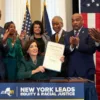King Charles has sent a congratulatory message to Grenada to mark 50 years of their independence in his first public statement since his shock cancer diagnosis.
The monarch, 75, who is currently recuperating at Sandringham following his first cancer treatment, put tensions surrounding slavery reparations to the side as he praised the nation’s ‘leadership, resilience and innovation’.
The Caribbean nations have been said to be in the process of making formal demands to the Royal Family for slavery reparations, it has been reported.
Rather than trying to negotiate inter-governmental agreements, several nations want to put their case directly to descendants of those thought to have benefited from slavery, including King Charles.
The Church of England, Lloyd’s of London and wealthy universities are also in the crosshairs, according to Arley Gill, chairman of the Grenada National Reparations Committee.
But putting the issues at hand to the side, the King apologised that he could not ‘be with you in person’ to celebrate the ‘momentous milestone’.
He also said that he holds ‘special memories’ after visiting the island five years ago.
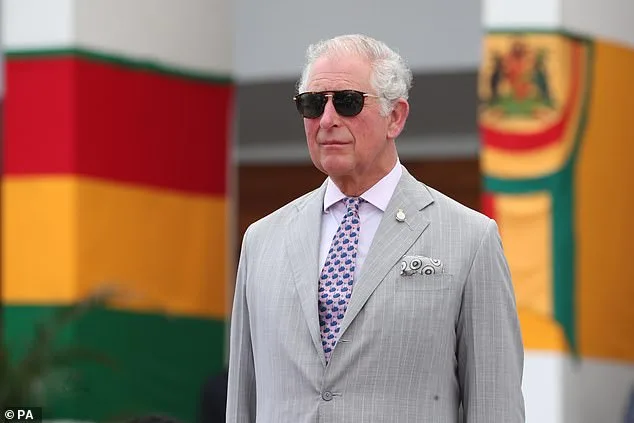
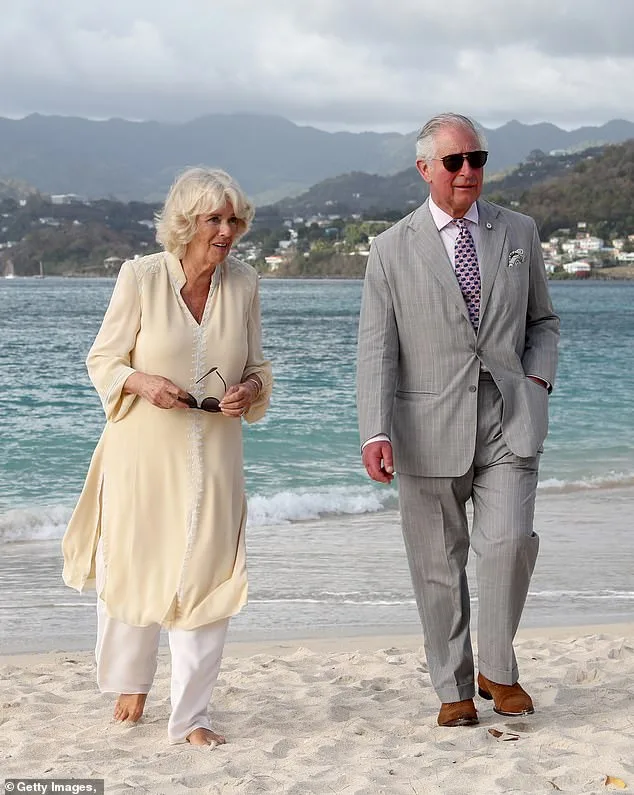
His full statement read: ‘On the occasion of the fiftieth Anniversary of the Independence of Grenada, it gives me great pleasure to send you all my congratulations and warmest good wishes.
‘Over these past five decades, I have watched with the deepest admiration as you have built your nation and forged Grenada’s distinct place in the world, and as an essential member of our Commonwealth family.
‘Together, you have established Grenada as an exemplar of democracy, human rights and the rule of law. Together, you have risen to the most critical challenges of climate change and biodiversity loss by offering the world an example of leadership, resilience and innovation. Together, you have given life to the words of your national anthem: “Aspire, build, advance!”
‘My wife and I hold such special memories of our visit to your beautiful ‘Spice Island’ five years ago, and of the warm and touching welcome you extended to us. Then, as whenever I have met Grenadians anywhere in the world, I was struck by your resilience, the strength of your community and by your shared determination to make a positive difference.
‘In this Grenadian spirit you can take the greatest pride. Whether through the remarkable contributions of Grenada’s artists, musicians and authors, or the triumphs of your athletes, al1 of whom have enjoyed such extraordinary success, ‘473 to the World’ is an inspiration to us all.
‘I can only say how sorry I am that I cannot be with you in person to mark this momentous milestone, and to enjoy a little Oil Down with you all! My thoughts are with everyone across Grenada, Carriacou and Petit Martinique, and all those in the Grenadian diaspora – ‘one people, one family’ – as you celebrate everything you have achieved and all that your future holds. My family join me in sending our heartfelt congratulations to you all. Charles R’.
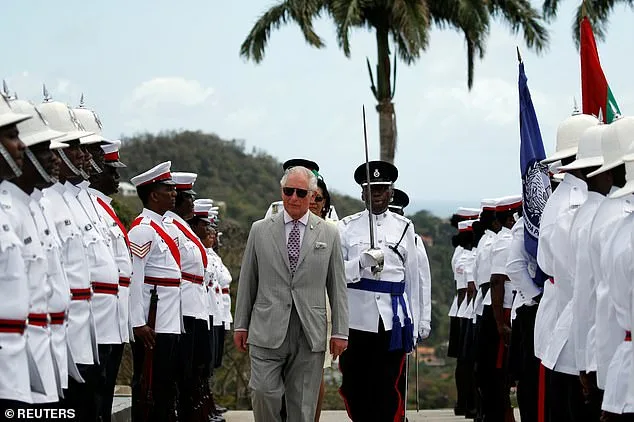
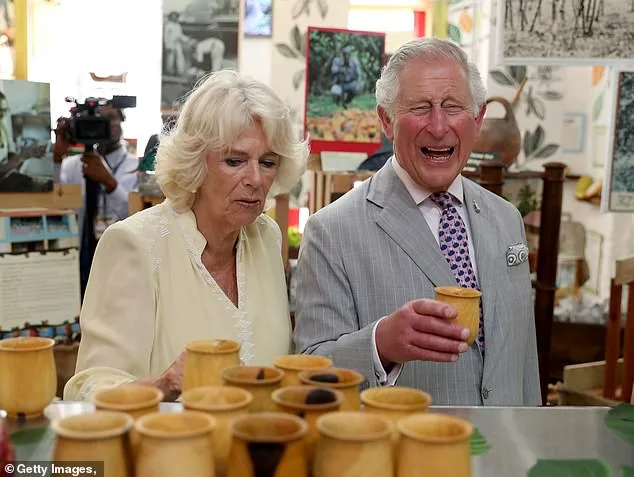
Late last year, it was reported that Caribbean nations would make formal demands to the Royal Family for slavery reparations by the end of the year.
Arley Gill, chairman of the Grenada National Reparations Committee said: ‘We are hoping that King Charles will revisit the issue of reparations and make a more profound statement, beginning with an apology, and that he would make resources from the Royal Family available for reparative justice,’ he told the Daily Telegraph.
‘He should make some money available. We are not saying that he should starve himself and his family, and we are not asking for trinkets. But we believe we can sit around a table and discuss what can be made available for reparative justice.’
The Reparations Commission for St Vincent and the Grenadines (SVG) intends to start issuing formal demands for reparations by the end of this year, it was claimed. The Royal Family is also likely to be squarely in the sights of SVG, which like Grenada was a British colony.
Its reparation commission chairman, Adrian Odle, said that ‘every property that the Royal Family is in possession of has the scent of slavery’.
The campaign has been given impetus by the decision of former BBC correspondent Laura Trevelyan to donate money and apologise to the people of Grenada for her family’s role in the historic slave trade.
‘My family, the Trevelyans, owned about 1,000 slaves on five different sugar plantations in Grenada in the 17th and 18th centuries’, she said last year.
‘When slavery was abolished in 1834, our family received compensation from the British government for the loss of our property, as part of 46,000 UK claims made to the Slave Compensation Commission. We received about £3 million in today’s money. The enslaved got nothing.’
One of the Royal Family’s most often cited links to slavery was the Royal African Company, which enslaved and transported hundreds of thousands from Africa to the Americas.
King Charles last year said he felt ‘personal sorrow at the suffering of so many’, but he did not go so far as an apology.
However, he has never publicly ruled out reparations.
The Dutch king, Willem-Alexander, has apologised for the Netherlands’ involvement in slavery, saying he ‘felt the weight of the words in my heart and my soul’.
King Charles is said to be interested in understanding the results of an academic study exploring the relationship between the British monarchy and the slave trade in the 17th and 18th centuries.


